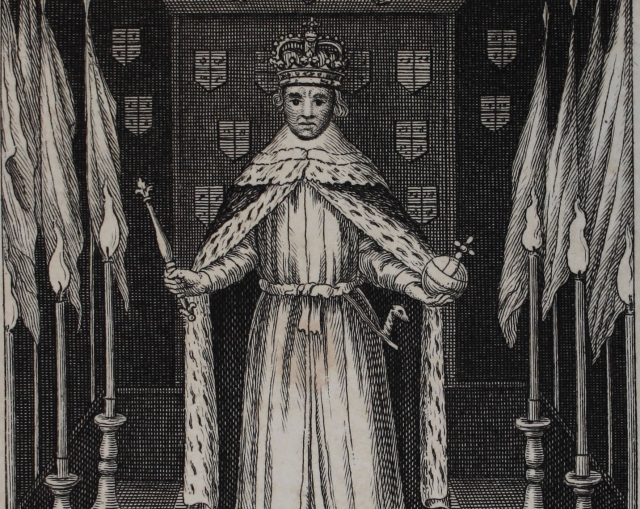Christmas is cancelled: National Archives Online Lesson on Cromwell

Oliver Cromwell
What were Cromwell’s main political and religious aims for the Commonwealth 1650-1660?
This is the first online lesson National Archives Education department have ever created on Oliver Cromwell using the National Archives State Papers as evidence for a historical enquiry. The State Papers offer a wonderful glimpse into the world of the Protectorate when England was a republic. For example one source reveals the impact of puritan beliefs on the celebration of Christmas. According to a report by Sir Henry Mildmay on 15th December 1650, to Parliament:
"Council have received informations that there was very wilful and strict observation of the day commonly called Christmas Day, throughout the cities of London and Westminster, by a general keeping of shops shut up; and that there were contemptuous speeches used by some in favour thereof"..
Other sources in the lesson cover the nature of martial law, Cromwell’s treatment of royalist supporters, his foreign policy and its effects at home, and the restoration of the monarchy in 1660. There is also material relating to Charles II’s court in exile, where according to a letter in January 1657, "the news from England is of plots and treasons, year of gunpowder treasons, that would have sent the Protector to heaven in a fiery chariot".
The lesson can be used to support the National Curriculum at key stage 3 covering development of Church, state and society in Britain 1509-1745. Or for key stage 4 it could be used by teachers teaching:
AQA GCSE History (8145)
Thematic study 2B Britain: Power and the People c1170 to the present day, part two: Challenging royal authority: the short and long term impact of the English Revolution including the significance of trial and execution of Charles I and Oliver Cromwell and the Commonwealth.
OCR GCSE (J410)
History A, Explaining the Modern World (Unit: War and British Society c.790-2010: Charles I’s personal rule 1629–1640; the Civil Wars and the abolition of the monarchy; the Restoration of the monarchy in 1660.

